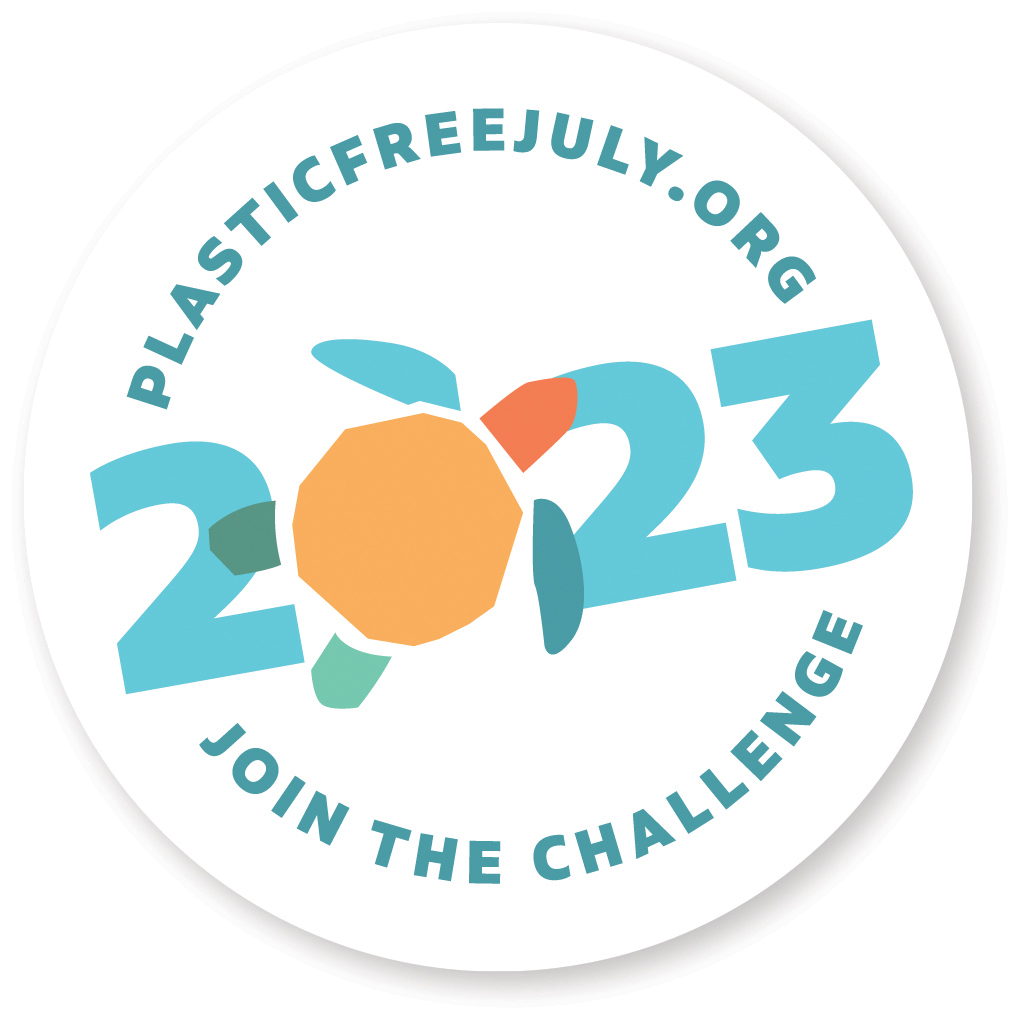With #plasticfreejuly just around the corner, we wanted to share some ideas around what businesses could do to get involved. From small changes around the office through to the redesign of products, there’s something for all organisations, no matter the sector in which you operate or where you are on your sustainability journey.
Make even the smallest of changes around the office
Staff kitchens and break rooms can generate large amounts of plastic waste. Start by looking at what plastic you are currently bringing into those spaces, and what you are throwing out.
- Create an inventory of what is in the kitchen/break rooms – are you using disposable items such as plates and cutlery? Do you provide snacks wrapped in plastic? Once you have the list, look for opportunities to make changes with the goal of eliminating single use plastic.
- Create a reusables library – have a collection of lunch boxes/takeaway containers and reusable cups that can be taken along to your local cafes. You may even want to consider a scheme such as Reusabowl for your office, or find out if any of your local cafes are using Again Again. Not all cafés and eateries may be used to this customer behaviour, so take the opportunity to chat with them about it – start that reusable revolution in your local area!
- Look at the consumables you are using. Can you switch to coffee beans or ground coffee instead of pods? Can you use loose leaf tea instead of tea bags? Did you know that many tea bags are sealed using plastic!
- Consider providing snacks that do not require packaging, for example switch to fresh fruit instead of choccy biscuits (this has the added benefit of enhancing the health of your employees too!). Is it possible to install a water filtration system to encourage your people to refill rather than using bottled water?
- Conduct a bin audit to gain an understanding of the plastic (and other waste) being consumed in your office, and identify if it is being managed correctly. You can read more on this topic in our recent Reframing ‘waste’ blog.
- While it is nice to show your appreciation for your staff or clients by perhaps giving them a gift or dishing out merchandise, try to do so consciously and make it something that will actually be used – think branded reusable drink bottles or coffee cups. Or give a gift that gives back – The Good Registry offers a gift card with a difference, recipients can choose from a variety of charities to donate to – no waste and contributing to a good cause!
- If you’re in charge of organising the next office Christmas party or some other celebration, take stock of what changes you could make to reduce or eliminate plastic – do you really need fake moustaches and silly glasses for the photo booth?
Engage your people
We recognise a big part of making these changes in your office requires the buy-in and support of your people, especially to change behaviours or do things differently to how they’ve been in the past. Consider ways to engage your workers and bring them on your plastic free journey.
- Run a competition incentivising people to make plastic free choices in their day to day, this could be as simple as swapping to a reusable water bottle or saying no to that plastic fish at your local sushi spot.
- Host an activity to raise awareness and educate your team, such as showing a documentary or short film, or run a workshop to learn something new, for example how to make homemade beeswax wraps.
- Have a volunteer day – get your team out to do your part by participating in a beach clean or litter pick in your local community.
- Encourage your team to talk more about plastic waste, bring their friends and family onboard and share success stories.
- Create a buy/sell/swap channel for your organisation, giving employees a way to get rid of unwanted goods while diverting them from landfill.
Influence your industry peers and suppliers
Going #plasticfree isn’t limited to your internal operations, large scale impact will only occur when entire supply chains or industries are working toward the same goal. Even if you’re a small business you have the ability to bring about change.
- Start by looking at your procurement policies and practices. Develop a policy that aims to reduce the amount of inbound plastic, ask your suppliers about alternative packaging materials or, better yet, reduce the amount of packaging needed altogether. This might relate to your procurement of stationery suppliers right through to how you receive raw materials used in creating your products, for example. Consider creative and innovative ways you could work with your suppliers – perhaps they can take back packaging to be reused for your next order, or perhaps you could help them pilot a new packaging material. If they aren’t open to any of these suggestions, it might be time to look for a new supplier that is better aligned with your vision and values.
- We don’t have the word count here to go into detail of specific sectors, other than to say each will have it’s unique challenges and opportunities when it comes to addressing the issue of plastic. We encourage you to reach out to your peers, have open conversations and find ways in which you can collaborate to tackle the challenges and reap the opportunities together.
Take a hard look at your products
This is a big one, but this is also where you have the potential to have the biggest impact by adopting principles of a circular economy to design out (plastic) waste and increase the life of a product to prevent plastics entering the environment.
- Can you design your product differently to eliminate or reduce the amount of plastic it uses? Could you use an alternative material? Or use recycled materials? Can it be designed to last longer?
- Is it feasible to put a take-back scheme in place whereby you control the end of life of your product, ensuring any plastic components are recycled or reused?
- Communicate to your customers and do everything you can to help ensure they do the right thing with your product or packaging when they are done with it. Ensure you’re labelling correctly and use your channels to reinforce it. Keep up to date with legislative changes in your local area and end markets.
Don’t keep it to yourself
Spread the word about the actions your organisation is taking this #plasticfreejuly. Share your journey. Top hint – you don’t have to be perfect! Any change in the right direction toward eliminating new plastics is a positive thing!
Want to find out more?
The Plastic Free July website is brimming with lot’s more ideas of things you can do at home, at work, and in your community to get involved.
If you’re stuck on what more your organisation could do, we’d love to help. If you’re interested in any of the following, get in touch:
- Facilitating an education session for your staff
- Conducting a bin audit
- Support with circular product or packaging innovation
- Development of procurement policies
- Specialist sourcing projects
Finally it’s important to remember #plasticfreejuly is just the start. Any positive changes you make to eliminating plastic waste should be built into business as usual while continuing to challenge yourself and your business to look for ways to further reduce your environmental impact.
Written by Emma Brockie, Sustainability Consultant.

